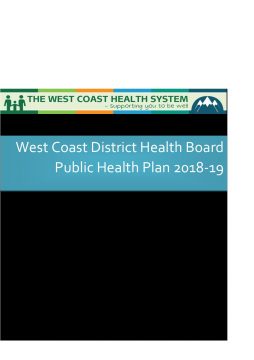Public health is the part of our health system that works to keep our people well. Our goal is to improve, promote and protect the health and wellbeing of populations and to reduce inequities. Our key strategies are based on the five core public health functions1:
1. Information: sharing evidence about our people’s health and wellbeing (and how to improve it)
2. Capacity-building: helping agencies to work together for health
3. Health promotion: working with communities to make healthy choices easier
4. Health protection: organising to protect people’s health, including via use of legislation
5. Supporting preventive care: supporting our health system to provide preventive care to everyone who needs it (e.g. immunisation, stop smoking).
The principles of public health work are: focusing on the health of communities rather than individuals; influencing health determinants; prioritising improvements in Māori health; reducing health disparities; basing practice on the best available evidence; building effective partnerships across the health sector and other sectors; and remaining responsive to new and emerging health threats.
Public health takes a life course perspective, noting that action to meet our goal must begin before birth and continue over the life span.
This plan describes how we will work to keep our people well in 2018-19.
I'm not well, where do I go?
Self Care
Grazed knee, light cough, go to healthinfo.co.nz
Pharmacy
Diarrhoea, runny nose, hayfever, sore throat
Phone Advice 24/7
Unwell? Call your practice to talk to a nurse after hours
General Practice
Non-urgent health concerns, ear pain, fever
Hospital Emergency
Serious accidents, chest pains, stroke call 111

